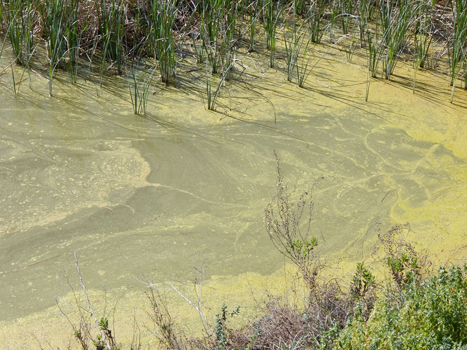Many of the world's wetlands may be profoundly affected by climate change over the coming decades. Although wetland managers may have little control over the causes of climate change, they can help to counteract its effects through local measures. This is because direct anthropogenic impacts, such as water extraction and nutrient loading, work in concert with climate change to damage wetlands. Control of these local stressors may therefore ameliorate undesired effects of climate change, such as a shift towards dominance by invasive floating plants, increasingly frequent cyanobacteria blooms, or extinction of key species. Using the iconic Doñana wetlands in Spain as a case study, we illustrate how the concept of creating a "safe operating space" may be implemented to better ensure that ecosystems do not surpass thresholds for collapse during an era of global change. informacion[at]ebd.csic.es: Green et al (2017) Creating a safe operating space for wetlands in a changing climate. Front Ecol Environ doi:10.1002/fee.1459
http://onlinelibrary.wiley.com/doi/10.1002/fee.1459/full

 Las altas temperaturas están provocando que las lagunas y las marismas de Doñana pierdan agua rápidamente
Las altas temperaturas están provocando que las lagunas y las marismas de Doñana pierdan agua rápidamente




